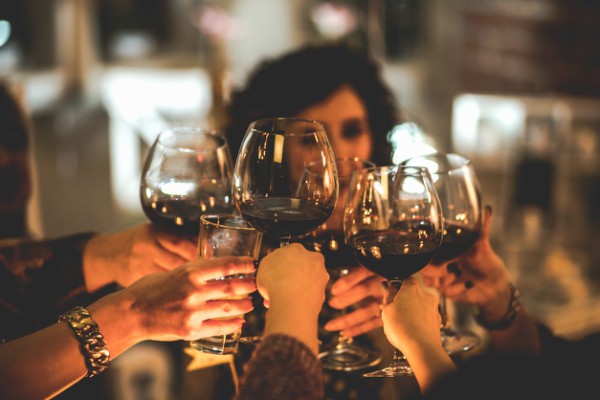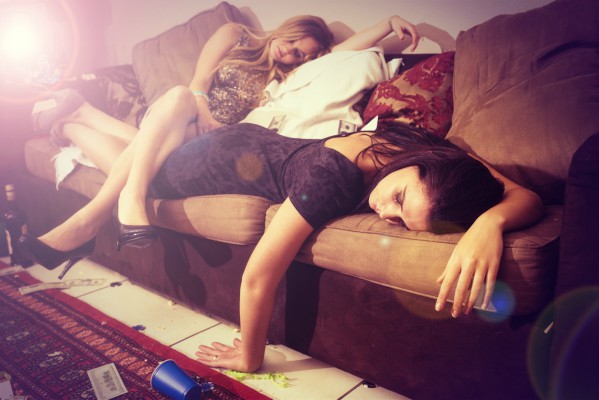Drinking has been in the news again, with figures revealing the over 50s now drink more than ever. We talked to Dr Iqbal Mohiuddi, one of the consultant psychiatrists at 25 Harley Street Day Clinic about the rise of the functioning alcoholics
This week, new NHS figures revealed that people under 50 are drinking less than ever while their ‘baby boomer’ parents – those aged 55-74 are drinking more than any other generation. Although 45 per cent of English hospital admissions caused by drinking were among those aged 55 to 74 in 2015/16, up from 36 per cent a decade earlier, under-35s, in contrast, only made up nine per cent of alcohol-linked admissions last year, compared with 29 per cent ten years previously, official figures show.
So, on one hand, we have a younger generation who see being sober as cool with a growing number of celebrities going teetotal – Blake Lively, Kim Kardashian and Jennifer Lopez to name a few – and an older one drinking more than ever. Whatever this means, one thing is for certain, our alcohol use is in the spotlight more than ever with more and more people are asking themselves the questions, am I an alcoholic? and, what would it take for me to cut down or even stop altogether?
Healthista spoke to leading Dr Iqbal Mohiuddin, a consultant psychiatrist with a special interest in addictions and clinical lead at 25 Harley Street a medical cay clinic and addictions treatment centre in London to find out the answers.
The rise of the functioning alcoholic
Staggeringly, Dr Iqbal estimates that between a third to a half of the people he treats for alcohol dependency are not those who fit the mythical ‘vodka on the cornflakes’ stereotype, but can still be functioning in well paid jobs. ‘They’re working in high-powered jobs, in the City or the media and drinking heavily is accepted, almost expected,’ he explains. ‘They have carried on for years in this way but suddenly they’re getting physical symptoms such as feeling sick in the mornings and needing a drink and perhaps a partner has said they have had enough and it’s the drink or them. Conversely, as more companies become aware of drinking issues in the workplace, they may send people in for detox treatment to protect the health of their valued employee.’
Functioning alcoholism appears to be an increasing problem, says Dr Iqbal. ‘They may be functioning at home and maintaining their responsibilities whilst drinking excessively. There’s likely also to be denial about their alcohol intake, in spite of concerns raised by family and friends. Then of course, there’s the possibility of increased risk-taking associated with alcohol such as drink-driving and sexual encounters, leading to further legal and social problems,’ he says.
The reason your hangovers get worse each year
If it seems like you’re drinking more as you get older, you could well be. ‘Like with any drug, our bodies develop tolerance to alcohol,’ says Dr Iqbal. ‘That means that as you get older, and your drinking progresses, you may need more and more alcohol to get that same relaxing effect you used to get,’ says Dr Iqbal. As a result, the risks increase too. ‘Obviously increased dependency on alcohol will be putting your liver, your heart and your whole body under more pressure than in the past. Mentally, if you keep drinking there’s a high risk of depression which can become more and more severe as your alcohol intake increases and as you get older.’
And, if you’re wondering why your hangovers get worse with each passing year, this might help. ‘As you get older, it becomes more difficult to tolerate alcohol, it’s more likely to be causing damage and it takes longer to recover from a binge or episode of excessive drinking. Hangovers for example become worse as your liver takes more time to process the alcohol from your system,’ says Dr Iqbal.
Subtle and not-so-subtle signs
One of the most common signs of functioning alcoholism is a gradual increase not only in the quantity but also the frequency of your drinking over time, says Dr Iqbal. ‘You need more and more to get the same effect,’ he says. ‘If you’re relying on it to take anxiety away or to relax it’s worth thinking about your intake.’
Then there’s the binge factor. ‘A lot of people think they are fine because they may not drink for a few days during the week, but at the weekend, they’re binge drinking on multiple evenings and that’s doing just as much – if not more – damage than daily drinking,’ says Dr Iqbal. Anything more than four units of alcohol (units are classified as a small glass of wine, a half a pint of beer or a 1.5 ounce shot of spirits) drunk in one sitting is considered a binge by professionals, says Dr Iqbal. ‘During a binge your body is literally saturated with alcohol and even though you think you can tolerate it, your body isn’t breaking it down any quicker. A good mantra to keep in mind is that human beings can only tolerate one unit of alcohol in an hour so try and stick to that.’
An easy tool therapists use to gauge whether someone has a problem with alcohol is shortened to the acronym CAGE, which covers the subtle signs that your alcohol intake has become a problem:
C – Cutting down Have you ever thought you should cut down on your drinking?
A – Annoyance Do you ever get annoyed or angry when people tell you about your drinking?
G – Guilt Do you feel guilty about your drinking or any aspect of its effects on yourself or other people?
E – Eye-opener Do you feel the need to have a drink to feel better, especially in the mornings to calm your nerves.
‘You don’t have to answer yes to all four to have a problem,’ says Dr Iqbal. ‘If one or two of those are answered positively, it’s highly suggestive you could have a problem with alcohol.’ Of course, these are subtle signs and they don’t necessarily mean you’re an alcoholic, but there is a fine line between dependency and enjoyment of a drink and the main difference is frequency, quantity and how you feel when you don’t drink, Dr Iqbal explains. ‘The tipping point, he says, is usually when someone loses, or faces a very real fear of losing, someone they love because of their drinking. It’s almost always the thing that brings people to us.’
What to do if you think you have a problem
Be honest with yourself and others If you’re worried about a friend’s drinking tell them, if they react with anger – perhaps subtley refer to the CAGE acronym, above. If you think you have a problem, says Dr Iqbal, it’s much easier to start cutting back on alcohol while your problem is still mild or moderate as withdrawal only gets more difficult the longer you have been drinking heavily. Plus, it’s much easier to cut back on alcohol before drinking problems damage your health than once your drinking is out of hand, Dr Iqbal advises.
Keep a diary of your drinking You may be surprised by how much you really do drink and this can give you the motivation to cut down, he suggests. Then, don’t be afraid to tell a partner or a relative, it’s likely they have been worried about your drinking for some time.
How do you behave when you’re drunk? Ask friends about this. If they say you’re noticeably always an angry, miserable or sexy/flirty drunk it could be that drinking dramatically alters your personality and could potentially land you in danger if it hasn’t already. Is that what you really want?
Take practical measures to cut down or give up It’s no longer uncool to give up drinking with celebs such as Blake Lively and Kim Kardashian taking the pledge. Avoid making excuses or big gestures about your not drinking, and try simple things such as ordering your mineral water and some fresh lime in a wine glass – no one will even notice you’re not drinking!
Try therapy or self-help groups For miild, moderate or even severe alcoholism, the self-help group Alcoholics Anonymous, started in 1939 and based on 12 steps that help alcoholics tackle and change the reasons they drink is potentially the most used self-help system for alcoholism in the Western world. ‘The 12 steps can be a very powerful adjunct to the recovery process and to maintain abstinence as it works by first acknowledging that there is a problem, so you’re accepting the behaviour and addiction and no longer denying it and you’re sharing with fellow addicts which can help with feelings of isolation and guilt. It’s based on the belief in a God of your understanding but if that doesn’t work for you, there are now some atheist AA options’, Dr Iqbal attains.
Get some professional help If you’re drinking anything under 10-15 units a day, you can potentially stop fairly quickly with minimum withdrawal symptoms, says Dr Iqbal. However, more than that and you may require a medically assisted withdrawal process which can administer medicines to make it easier while also providing therapy and rehab to identify and deal with the reason you’re drinking so much, he explains. ‘Such a process can help with the ‘drying out’ process of the ‘shakes’, high blood pressure and fever that can be associated with giving up a heavy drinking habit. B ut make sure you’re not relying on tranquiliser medication such as Valium or Vanax (these are also known as benzodiazepines and are highly addictive) as alternatives.’
Talk to your GP There are drug and alcohol services, counselling and therapy options as well as detox units available that your GP can refer you for, says Dr Iqbal. ‘Tackling your alcohol problem can be hard work but it pays off in the end by making a difference across all aspects of your life.
Twenty-five Harley Street is an integrated clinic with a range of services, including counselling and psychiatry for emotional wellbeing. Please call 020 3883 9525 to make an appointment.
More Healthista Content:
5 vegan cake recipes with the wow factor
11 healthiest alcoholic drinks – a nutritionist’s guide
Is your Instagram making you ill?
Antibiotic resistance PLUS how to fix a cold fast without drugs
Like this article? Sign up to our newsletter to get more articles like this delivered straight to your inbox.

























































